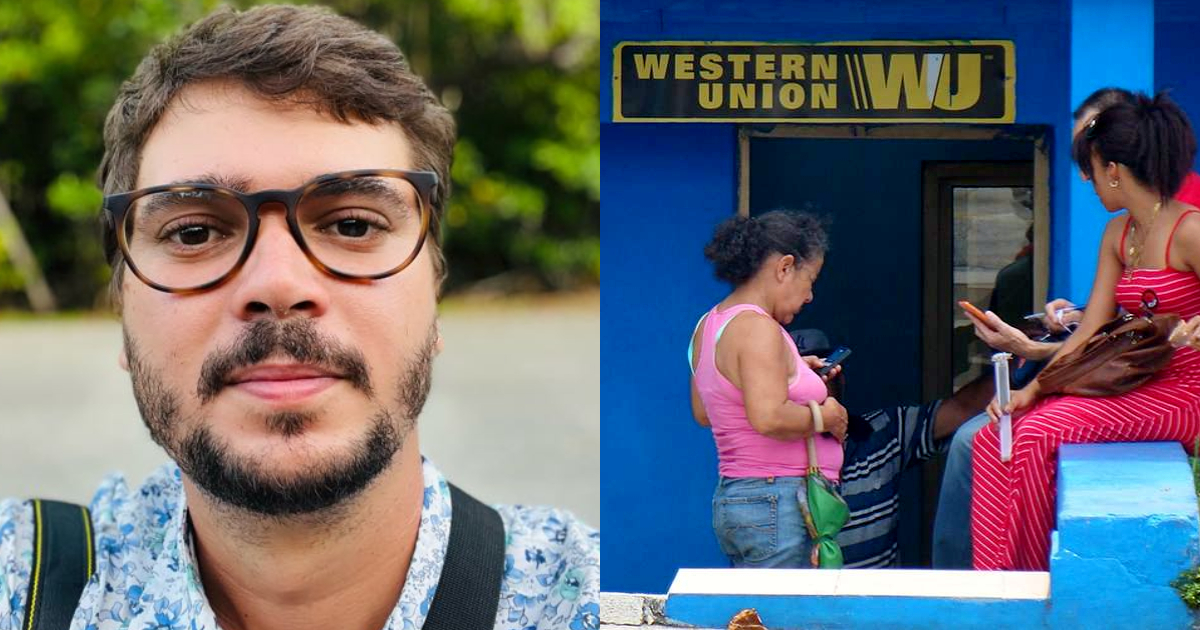
"The dollar is going to continue rising and has no limit in the short term." This is how forceful Cuban economist Miguel Alejandro Hayes is, who believes that "all the conditions that generate the increase in the dollar are still present." "To what extent? To what extent do the variables that cause pressure to increase continue, which are the shortage on the one hand and the import pressure that the private importing sector is exerting, which results in an increase in demand," he pointed out to questions. ofCyberCuba.
"We are talking about the general increase in scarcity, which generates pressure towards consumption in dollars. The scarcity of supply in Cuban pesos means that people increasingly prefer the dollar. On the other hand, import pressure, the discreet opening and directly to that private sector that is protected and committed so as not to confront the Government, is significantly increasing these imports and that increases the demand for foreign currency. Therefore, it is a pressure to increase the price of the supply. of the exchange rate occurs at the same time that the supply of dollars in the informal market is not increasing, as a result of tourism and remittances not increasing significantly. There is no formal restriction on the increase in the exchange rate. beyond the monetary circulation itself in Cuban pesos. However, I believe that this is a variable that will not determine much. In short, it can continue to rise," Hayes stressed.
To the question ofCyberCuba Regarding how this rise in the dollar can be corrected, the economist pointed out that from a citizen point of view there is no option. "It is a utopia, in the case of Cuba, from the citizen's point of view, to deal with inflation because sooner or later that process falls on you. And when one raises the price of their services, the others are going to do the same. The alternatives necessarily fall, from a moral, political and legal point of view, on the economic authorities of the country, ultimately and the Government does not currently have any possible instrument of conventional economic policy to solve the problem of inflation."
Just this week, for the third consecutive day, the euro rose to 340 pesos per unit, a record price since 2019.The dollar follows closely: it is bought at 330 pesos and sold at 333. This points to a possible rise in the coming hours. The freely convertible currency (MLC) is 275 pesos.
In Hayes' opinion, the State lacks "the capacity to generate a monetary policy that allows reducing the exchange rate. In other words, the Cuban Government has no supply of foreign currency nor a way to access a supply of foreign currency so that, through of the Central Bank, the supply can be officially increased and the exchange rate falls. Rather, the Cuban Government has carried out, in quotes, monetary and exchange rate policies that go in the opposite direction to a reduction in the exchange rate. Hence the depreciation and devaluation, which are two different things, of the Cuban peso," the economist insists.
Hayes also points out that from the point of view of fiscal policy, of economically active policy, the Government cannot do anything either because it does not have the budget to do so. This is due, he explains, to the existence of "a business system destroyed and because it also does not have an economic ecosystem, an infrastructure of the economy, whether laws or infrastructures in the traditional sense of the word, the electrical system, for example, such that there is some type of economic actor that responds efficiently to a productive policy that ends up reversing the depreciation of the Cuban peso. The Cuban Government cannot operate either monetary or productive. There are no alternatives," he stressed.
consulted bythe departure of millions of Cuban pesos from the Island, denounced by Cuban Customs, The economist assures that something similar already happened in the CUC period, when "private cadecas (exchange houses) prospered and flourished in Panama, Mexico and Miami. I know of those three cases. The objective of all this is to have a house of private exchange and obtain the profits that everyone who has a business of offering and exchanging money obtains. That is, selling at one price and exchanging at another. This is not at all relevant. It is part of the modernization and sophistication of the informal market. For me, it is efficient. It responds to a natural process of the economy that is the proliferation in spaces where Cubans live who exchange money. They find a market niche and generate business alongside them. It is already too much that this was news and a phenomenon noticeable by the press and public opinion. In summary, the explanation for this is that it is nothing more than the natural process of modernization and expansion of the Cuban informal market. and economic actors. "I would say that it is part of the maturation process of the informal currency market, which is the only real one with which private economic actors can interact."
What do you think?
COMMENTFiled in: